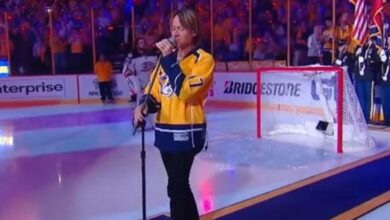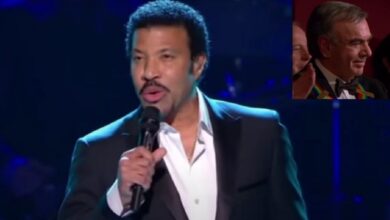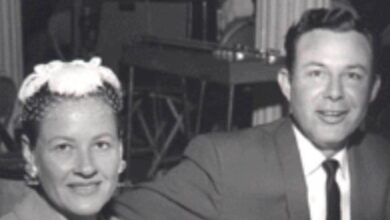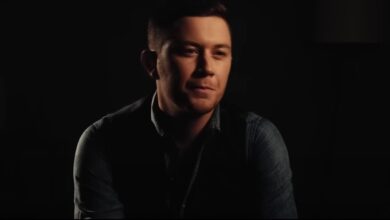What a hidden gem of an artist. I’d be overjoyed to witness Garth and Scotty perform this duet!
“Seven Spanish Angels” is a standout track in the discographies of both Willie Nelson and Ray Charles, showcasing their extraordinary vocal chemistry and Nelson’s influential songwriting. Released in 1984, the song is a poignant ballad that delves into themes of love, sacrifice, and the afterlife. The narrative unfolds through a compelling story of two lovers who, caught in a deadly confrontation, find solace in each other’s presence as they face their fate. Their tragic end is accompanied by the imagery of seven Spanish angels watching over them, adding a spiritual dimension to the song’s emotional depth.
The song’s creation is attributed to Troy Seals and Eddie Setser, whose lyrical composition resonates with vivid storytelling. Seals, known for his contributions to country music as both a songwriter and performer, infused “Seven Spanish Angels” with a narrative that reflects his talent for creating emotionally charged and relatable music. Setser, another respected songwriter, played a crucial role in shaping the song’s evocative lyrics, blending country sensibilities with a deeper, almost mystical, narrative.
Willie Nelson, with his distinctive voice and guitar style, brings an authentic touch to the song. Nelson’s career, spanning several decades, is marked by his unique blend of country, folk, and blues influences. Known for his laid-back demeanor and signature guitar playing, Nelson has been a central figure in country music since the 1960s. His contributions to the genre are substantial, with hits like “On the Road Again” and “Blue Eyes Crying in the Rain” further establishing his status as a country music icon. His interpretation of “Seven Spanish Angels” highlights his ability to convey deep emotion through his music, making the song resonate with fans across generations.
Ray Charles, a legendary figure in the world of music, brought his soulful voice and emotive delivery to the duet. Charles, often hailed as a pioneer in blending gospel, blues, and jazz, had a profound impact on various musical genres. His career, which began in the 1940s, included groundbreaking work in rhythm and blues, soul, and country music. Charles’s collaboration with Nelson on “Seven Spanish Angels” is a testament to his versatility and his ability to transcend genre boundaries. His voice complements Nelson’s perfectly, adding a layer of depth and sorrow to the song’s narrative.
The song’s impact on the country music charts was significant, reaching number one and remaining a staple in Nelson’s repertoire. Its success can be attributed to its powerful storytelling, the chemistry between the two vocalists, and the emotional resonance of the lyrics. The song has been covered by various artists, including Trisha Yearwood, George Strait, and Miranda Lambert, each bringing their own interpretation to the song while honoring the original’s essence.
“Seven Spanish Angels” has been a subject of discussion beyond its musical achievements. The song’s depiction of violence and its portrayal of the Mexican cultural elements have sparked debates among critics and listeners. Some argue that the song might perpetuate negative stereotypes or glorify violence, while others view it as a poignant exploration of themes that are both personal and universal. This dichotomy in reception highlights the song’s complexity and its ability to evoke varied interpretations based on individual perspectives.
Despite these debates, the song remains a beloved classic, celebrated for its lyrical depth and the memorable collaboration between Willie Nelson and Ray Charles. It stands as a testament to both artists’ exceptional talents and their ability to create music that resonates on multiple levels. The song’s legacy continues through its enduring popularity and the various artists who have chosen to cover it, ensuring that “Seven Spanish Angels” will remain a significant piece in the country and music landscape for years to come.
?





